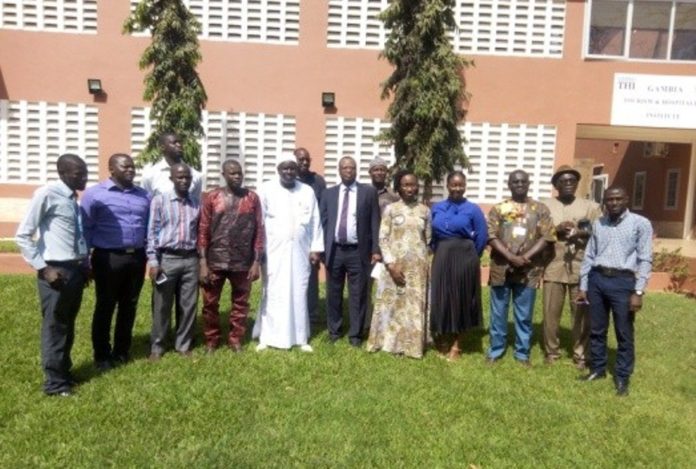By Ndey Sowe
The National Disaster Management Agency (NDMA) in collaboration with Ministry of Finance, on Wednesday June 19th, launched a $2.7 million African Disaster Risk Financing (ADRiFi).
ADRiFi is a program funded by the Africa Development Bank (ADB), and is geared towards strengthening the resilience of rural households to climate related shocks, by enhancing the capacity of the Government to respond effectively to drought. This is said to be done through an integrated approach to managing disaster that will cushion Government from the financing impacts of the effects of drought, and further guarantee that the program will foster sovereign risk transfer solutions as tools for enhancing disaster risk management in the country, with prompt assistance to affected persons in rural communities.
At the ceremony held at the Gambia Tourism Hospitality Institute (GTHI) in Kanifing, Sanna Dahaba the Executive Director of the National Disaster Management Agency (NDMA), spoke on the symbolic importance of the program in their calendar of disaster risk, adding that it is the first time a project on Risk Transfer is launched in the country.
Dahaba said the program came at a time when the Government of the Gambia is committed to put premium to assist disaster victims; that it has come at a time when the Government’s long time and most reliable partner, the World Food Program, is willing to take on a replica program to support Government in areas where Government premium pay outs will not be able to cover.
Dahaba said the launch of the program came about when the government engaged the ARC in 2015 to assist them in getting donors to finance the program after 2016.
Cecil Nartey, Agricultural Economist and Coordinator at the ADB said the Gambia is the first country program to be launched under ADRiFi since approval of the overall framework document by the Bank’s Board of Directors in October 2018; that in 2016, a number of regional member countries (RMCs) including the Gambia, made requests to the Bank for assistance in premium payment to the ARC’s sovereign insurance risk pool, which seeks to address the risk of climate change particularly drought, in the country.
“We should be happy to note that the Gambia is serving as a pioneer and crusading guide leading other African counties in championing the initiative,” he noted; that the program is expected to impact efficient and timely first response delivery to target beneficiaries affected by disaster, and to strengthen resilience to drought linked disaster in the country.
He said the program will target individuals affected by drought and will benefit over 275, 000 individuals with special focus on women and children. This he said, will constitute about 30% of individuals below the poverty line in the country.
He averred that indirect beneficiaries of the program are local and rural communities, including small- scale farmers who may benefit from assistance in the event of drought.
“We believe that with the information on cost for responding to the disaster, Government will be able to develop long-term management of disaster and its impacts,” he concludes.




















